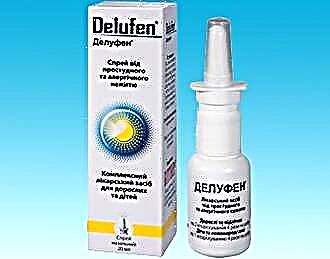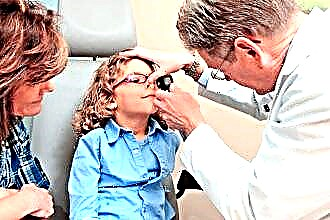Loss of voice or aphonia occurs with laryngitis. The condition may be accompanied by additional symptoms such as fever, pain in the larynx, dryness, and general malaise. However, in some cases, pathology appears without any other signs. To get rid of it, you need to find an effective treatment. Most often, voice loss pills are used as the main or auxiliary therapy.
Causes of aphonia
 The vocal folds are located in the larynx, therefore their condition is closely related to the condition of this organ. Laryngitis most often causes hoarseness, hoarseness, partial or complete aphonia. This is due to the spread of the infection to the mucous membranes. Violation can be provoked by viruses, bacteria and, in rare cases, fungal microflora. As pathogens multiply, the voice begins to weaken, its timbre changes.
The vocal folds are located in the larynx, therefore their condition is closely related to the condition of this organ. Laryngitis most often causes hoarseness, hoarseness, partial or complete aphonia. This is due to the spread of the infection to the mucous membranes. Violation can be provoked by viruses, bacteria and, in rare cases, fungal microflora. As pathogens multiply, the voice begins to weaken, its timbre changes.
This process is due to the fact that the blood vessels in the vocal folds expand during inflammation, and their permeability increases. Lymph flow is also disrupted, which leads to the onset of edema. It is he who becomes the main "culprit" of aphonia. The voice can disappear abruptly, this happens with an acute course of laryngitis. If the disease is chronic, then the violation manifests itself in episodes. It can be triggered by such factors:
- overexertion of the vocal folds (often observed in artists, speakers, teachers);
- hypothermia of the body;
- stressful situations;
- contact with allergens;
- the use of hot or cold food, drinks;
- mechanical and thermal injuries of the larynx.
With sluggish pharyngitis, not only the laryngeal mucosa is deformed, but also the vocal folds themselves. Thickening and thinning, nodules and sores form on them, this leads to the appearance of hoarseness, the voice can sometimes disappear completely. This condition requires an integrated approach to troubleshooting the problem.
The mechanism of action of tablets
 Tablets are most often chosen as auxiliaries. They can relieve local symptoms, but rarely affect the pathogens themselves. The composition may include substances aimed at destroying the membranes of pathogenic cells, they prevent the spread of infection and stop the reproduction of pathogenic microflora. It is also important that the preparations contain local anesthetics to quickly relieve the patient's condition.
Tablets are most often chosen as auxiliaries. They can relieve local symptoms, but rarely affect the pathogens themselves. The composition may include substances aimed at destroying the membranes of pathogenic cells, they prevent the spread of infection and stop the reproduction of pathogenic microflora. It is also important that the preparations contain local anesthetics to quickly relieve the patient's condition.
If hoarseness or aphonia occurs against the background of an allergic reaction, corticosteroid and antihistamines are prescribed. In the presence of a cough, agents may be prescribed to dilute mucus and actively remove it from the upper respiratory tract.
It is also important that the medicine has a moisturizing and protective effect, this will help eliminate the dryness of the mucous membrane and prevent its re-damage. The main task of the drugs is to fight inflammation and edema, which leads to a change in the voice.
Types of funds
You can regain a lost voice with the help of pills that eliminate local symptoms, fight directly with the causative agents of laryngitis, or have a complex effect. Only a doctor prescribes drugs, since the causes of the onset of pathology can be different and they need to be influenced by various means.
Let's take a look at the most popular medications that help eliminate aphonia.
| Name of tablets | Active ingredients | Mechanism of action |
|---|---|---|
| Isla | Icelandic moss extract. | Eliminates microbes, disinfects mucous membranes without overdrying it, increases local immunity, relieves inflammation, envelops the affected tissue with a protective film, preventing dryness and irritation. |
| "Strepsils" | Amylmethacreazole, 2,4-dichlorobenzyl alcohol. | It is active against a wide range of microbes, gram-positive and gram-negative bacteria, aerobic and anaerobic microorganisms, fungal flora, destroys the cells of pathogenic cells, increases local immunity, relieves inflammation and edema, eliminates pain and promotes expectoration of mucus. |
| "Neo-angin" | Levomenthol, 2,4-dichlorobenzyl alcohol, amylmetacresol. | Disinfects mucous membranes, relieves inflammation and edema, relieves local anesthesia, improves blood microcirculation in the laryngeal mucosa, is active against gram-positive and gram-negative aerobic and anaerobic bacteria, yeast fungi. |
| "Mukaltin" | Althea officinalis extract | It stimulates the functioning of the bronchial glands, makes the phlegm less viscous and sticky, increases the activity of the ciliated epithelium of the respiratory tract, which promotes the rapid discharge of phlegm, relieves inflammation and coats damaged tissues, promotes their regeneration, and eliminates irritation. |
| "Prospan" | Dry extract of ivy leaves. | Relaxes smooth muscles, eliminating spasms, stimulates the production of phlegm, dilutes it and gently removes it from the respiratory tract. |
| "Fluditek" | Carbocisteine. | Reduces the activity of goblet cells, which leads to a decrease in the mucus they produce, normalizes the drainage function of the bronchi, and fights mucosal edema. |
| "ACC" | Acetylcysteine. | Makes phlegm less viscous, promotes its efficient excretion. |
| "Kofeks" | Chlorpheniramine maleate, codeine phosphate. | Blocks histamine receptors, reduces edema, reduces vascular permeability, eliminates spasm, rhinorrhea and tearing, has a sedative effect. |
| "Cetirizine" | Hydrokyzine metabolite. | Eliminates allergies, prevents and facilitates the course of allergic reactions. |
Other measures
In the case when local drugs do not give any effect, the lost voice is returned with the help of antibiotics. However, therapy is prescribed only if it is revealed that the causative agents of laryngitis are bacteria. The dosage of drugs is selected individually for each patient. Inhalation can be used as an additional measure, they are especially useful for aphonia and help to quickly eliminate it.
Rinses are also highly effective; they are carried out using antiseptic medicinal compositions.
In addition, the patient is assigned to voice peace. You need to talk as little and as quietly as possible, this will help reduce the stress on the folds. Also, antiseptics are additionally used to irrigate the larynx; they can be released in the form of sprays or aerosols.
The patient must follow these rules to speed up recovery:
- refuse food and drinks that irritate the mucous membrane (sour, spicy, hot, cold, rough food);
- enter into the menu slimy and liquid dishes with a neutral taste;
- no smoking;
- stop drinking coffee and alcoholic beverages;
- limit physical activity.
In conclusion
You can choose pills for loss of voice for any patient. The funds can have a systemic effect on the body or relieve local symptoms. With advanced laryngitis, complex therapy is prescribed to eliminate the causative agents of the disease.
Only a doctor should be involved in the selection of drugs, since self-medication can cause complications and negative reactions. Treat the larynx on time and only after consulting an ENT.



